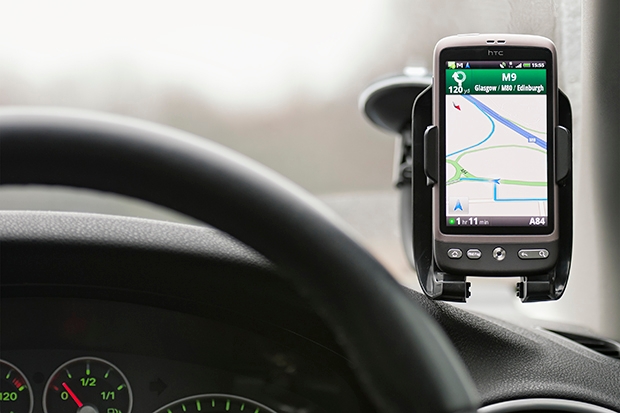In many ways a satnav is a miraculous device. A network of US military satellites more than 10,000 miles above the surface of the Earth, each broadcasting a signal with little more power than a 100-watt light bulb, allows a device in your satnav or mobile phone to triangulate your location on the ground to within seven yards or so. The system is so finely tuned that the clocks aboard the satellites must be calibrated to run 38 microseconds a day slower than Earth time to correct for the effects of general and special relativity. This allows your phone to know your location and, after factoring in real-time traffic information, to calculate the quickest route to any destination with an astonishing degree of precision.
And yet, after all that, I still ignore the advice from my satnav quite a lot.
A few weeks ago, for instance, I had to drive to Gatwick to catch a flight. The satnav told me to take the M25. I ignored it, and instinctively took the A25 instead. (On the way home, by contrast, I was happy to follow my satnav’s advice slavishly.) Why was this?
Actually, I didn’t know at first — my decision to take the slower A25 was instinctive, not consciously reasoned. But, on reflection, I now realise that my instincts were right and my satnav was wrong. Gut Feeling 1, Silicon 0.
This is because the nature of the two journeys was totally different. On the way home, I simply wanted to get home by the quickest expected route — and so the satnav’s thoughts coincided with my own. On the way out, however, I did not want the fastest route: I needed the route which was least likely to cause me to miss my plane.
This was not an optimisation problem: I didn’t need the fastest average route, but a route with a low variance and a high level of autonomy. Yes, 90 per cent of the time the M25 is ten minutes quicker than the A25, but if, say, a lorry jackknifes at Clacket Lane, you are stuck for an hour with nowhere else to go. On the A25, I know I’ll arrive at Gatwick ten minutes later, but rarely more than that. And, if the A25 is congested, there are plenty of back roads to try.
So when you have to catch a plane, a satnav provides a perfectly precise and logical answer to the wrong question.
One of the risks of demanding that all decision-making should be perfectly rational is that you often achieve an apparent rational consistency at the price of either narrowing your frame of reference or distorting the question. Human instinct has not evolved to find a perfectly optimal answer to a narrow question; it exists to find pretty good and reliably non-catastrophic answers to wide-context questions, often combining many forms of incompatible information. Its job is to be vaguely right, rather than precisely wrong.
This is why it is absurd to denigrate people for deciding their vote on the Brexit referendum ‘simply using their emotions’. A question like this cannot and should not be answered any other way. The only way you can answer the question ‘rationally’ is by misrepresenting the question — as if it is simply a matter of maximising economic efficiency. If that were the only question, there might be a single right answer, just as the M25 is the best way for me to get home. But we need to consider more than that: which is more likely to go catastrophically wrong — in or out? Which offers more autonomy — in or out? What is the value of that autonomy? Much as our overeducated, technocratic elite want to pretend otherwise, this is a decision for Kirk, not Spock.






Comments